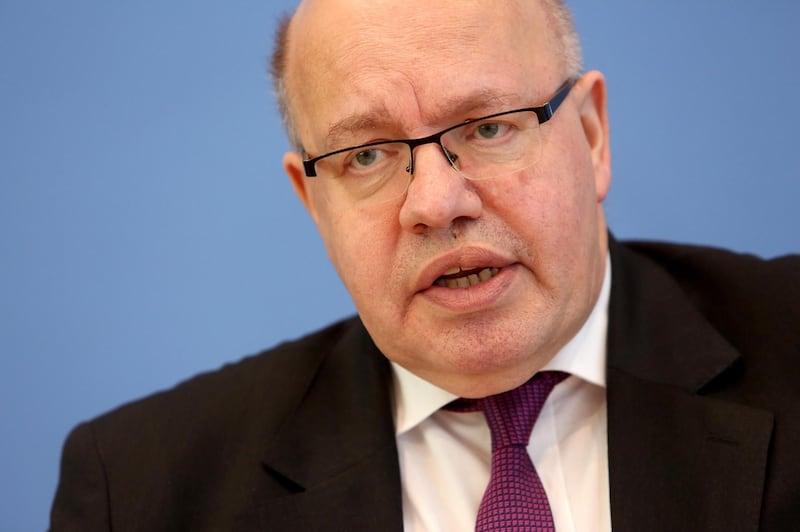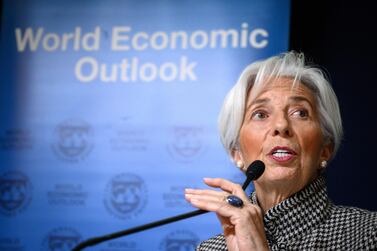The German economy is turning into Europe’s underperformer, with the government now predicting 2019 will see weakest expansion in six years.
Amid slowing global momentum and concerns over Brexit and trade disputes, the economy ministry on Wednesday cut its estimate to 0.5 per cent, half the pace previously forecast. It’s the latest in a series of downward revisions from a 2.1 per cent projection a year ago. Growth for next year is seen at 1.5 per cent.
While there’s been a small improvement in business confidence, manufacturing in Germany remains mired in a deep slump. Based on European Commission forecasts for the rest of the euro area, the government’s latest prediction would leave Germany as the region’s worst performer this year, bar Italy, which is stagnating.
“We think the risks to these forecasts are skewed to the downside," said Jamie Murray, Bloomberg's chief european economist. "That’s because, just as the worst of the storm seemed to have passed, fresh gloom has now appeared on the horizon. The manufacturing PMI plummeted in March - to levels not seen since the euro-area’s sovereign debt crisis - and factory orders plunged in February as well.”
The International Monetary Fund last week cut its global growth outlook on indications higher tariffs are weighing on trade. Economy Minister Peter Altmaier said the “current weak phase in Germany’s economy must be a wake-up call”.
"The German economy has not yet overcome the weakening in the economic upturn" that had been visible until mid-2018, he added, although "over the remainder of the year there are prospects of a significant recovery."
The extent of the slowdown has prompted appeals for Germany to use its financial cushion to boost spending. Mr Altmaier said Germany is investing into infrastructure, education and research at record levels.
The chancellor’s spokesman, Steffen Seibert, earlier this week denied the need for a package of measures to boost growth.
So far, Chancellor Angela Merkel's government has fended off demands from abroad to loosen its purse strings.
"We are not in a recession, our growth is slowing," finance minister Olaf Scholz said at the G20 meeting in Washington last week.
Germany's fall to earth began late last year, after growth had hit the comparatively breakneck pace - for western Europe - of 2.2 per cent in 2017, AFP said.
After a contraction of 0.2 per cent in July-September, the next three months brought zero growth - allowing Germany to just escape a "technical recession" or two successive quarters of shrinkage.
Across the whole year, the stumbling second half was enough to slow expansion to 1.4 per cent.







